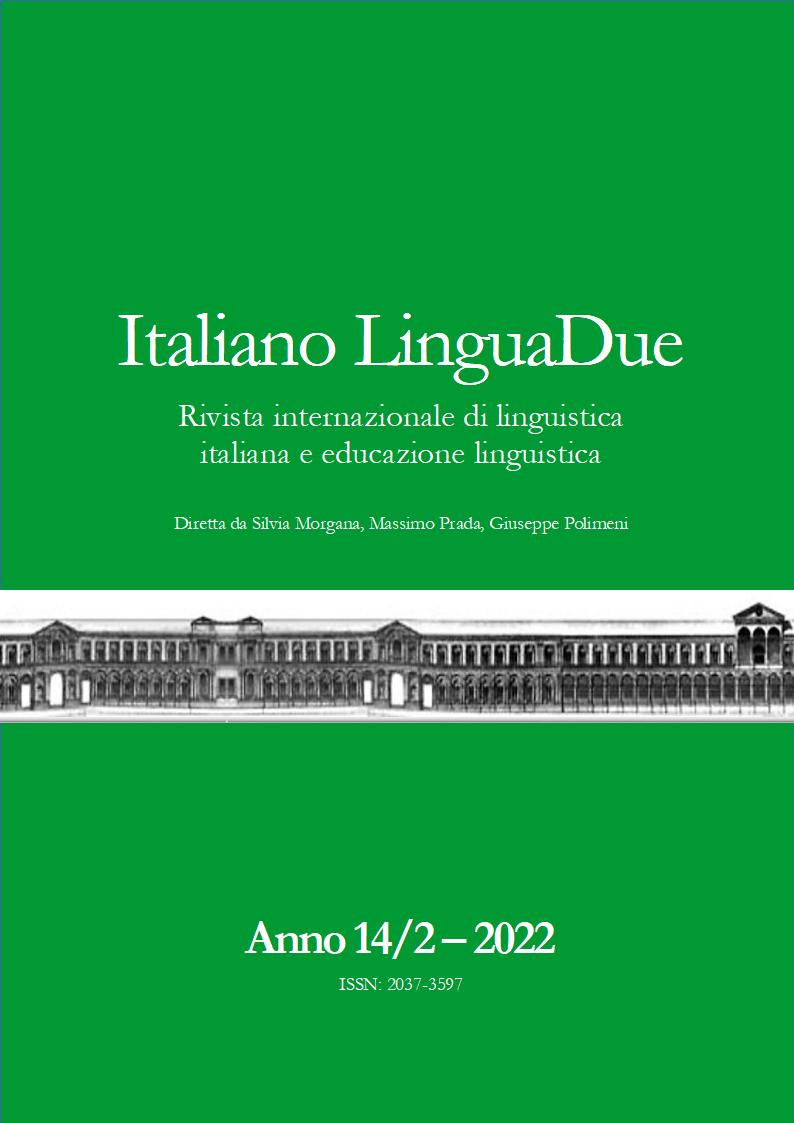L’APPROPRIATEZZA SOCIOLINGUISTICA NEI MATERIALI DI ITALIANO L2 PER MIGRANTI E RIFUGIATI: SPUNTI DA UNA RICERCA IN CORSO NELL’AMBITO DEL PROGETTO EUROPEO INCLUDEED
DOI:
https://doi.org/10.54103/2037-3597/19572Abstract
Il contributo presenta i primi risultati di un’analisi sistematica di materiali didattici cartacei e digitali espressamente concepiti per l’integrazione linguistica di migranti e rifugiati in corso di realizzazione nell'ambito del progetto europeo INCLUDEED. In particolare, si è cercato di verificare quanto questi materiali tengano conto in modo implicito ed esplicito della “appropriatezza sociolinguistica”, così come definita nel Companion Volume. La ricerca è stata preceduta da una serie di interviste strutturate a un campione di operatori del settore con lo scopo di capire come i materiali siano effettivamente usati nei diversi contesti concreti di insegnamento dell’italiano a migranti. Da una prima analisi dei libri di testo e dei corsi online in esame –limitata all’opposizione diafasica tra formale e informale e all'uso didattico di testi di ambito specialistico –emerge che la dimensione sociolinguistica e pragmatica non ottiene nei materiali sempre lo spazio che il particolare contesto didattico richiederebbe.
Sociolinguistic appropriateness in L2 Italian materials for migrants and refugees: evidence from in progress research within the European project INCLUDEED
This paper presents the first results of a systematic analysis of analog and digital teaching materials expressly conceived for the linguistic integration of migrants and refugees in progress within the European project INCLUDEED. Particular attention has been paid to verify how these materials are implicitly and explicitly oriented to “sociolinguistic appropriateness”as illustrated in the Companion Volume. The research was preceded by a series of structured interviews with a sample of sector operators with the aim of understanding how the materials are used in the various concrete contexts of teaching migrants. From an initial analysis of textbooks and online courses - limited to the diaphasic opposition between formal and informal and to the didactic use of specialized texts - it emerges that the sociolinguistic and pragmatic dimension does not have ever the space that the teaching context would require.




